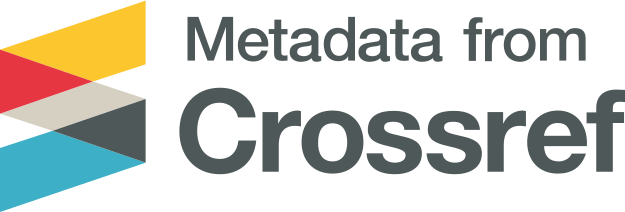Memotret Kepatuhan Pajak di Masa Sulit: Lessons Learned and A Way Forward
DOI:
https://doi.org/10.35838/jrap.2022.009.02.23Keywords:
tax compliance, crisis, SME, complianceAbstract
ABSTRACT
The Covid-19 affects the economy significantly where Micro, Small and Medium Enterprises (MSMEs) struggling to fulfill their tax obligation. The tax incentive is provided by the government to relieve and raise MSMEs' tax fulfillment and compliance. This study aims to analyze MSME tax compliance during the Covid-19 period using the Theory of Planned Behavior (TPB) perspective. This research is explanatory research by combining two types of approaches (quantitative and qualitative) which is an alternative research approach, namely mixed-method research. Technically, this research applies a sequential explanatory strategy, which is preceded by a quantitative method with a portion of 70% and followed by a qualitative method with a portion of 30%. In this study, a pilot test was conducted to determine the validity and reliability of the questionnaire used. Based on the results of the pilot test, strict procedures were carried out by removing components of the questionnaire that were not valid. The results of this study indicate that tax rates, tax understanding, and tax justice affect MSMEs' tax compliance. This tax compliance is improved when taxpayers understand the benefits of fulfilling tax obligations, understand tax fulfillment as positive behavior, and have enough capacity, possibility, and devotion to tax fulfillment. While tax sanction does not affect tax compliance since taxpayer has a limited understanding of it.
ABSTRAK
Pandemi Covid-19 berdampak cukup signifikan bagi perekonomian, terlebih para pelaku Usaha Mikro, Kecil, dan Menengah (UMKM). Pemerintah memberikan insentif perpajakan untuk meringankan beban pajak UMKM dengan harapan tingkat kepatuhan wajib pajak UMKM dapat meningkat. Penelitian ini bertujuan untuk menganalisis kepatuhan pajak UMKM di masa COVID-19 dengan menggunakan perspektif Theory of Planned Behavior (TPB). Penelitian ini merupakan explanatory research dengan mengkombinasikan dua tipe pendekatan (kuantitatif dan kualitatif) yang merupakan pendekatan penelitian alternatif, yaitu mixed-method research. Secara teknis penelitian ini menerapkan tipe strategi eksplanatoris sekuensial (sequential explanatory strategy) yang didahului dengan metode kuantitatif dengan porsi 70% dan dilanjutkan dengan metode kualitatif dengan porsi 30%. Dalam penelitian ini, dilakukan pilot-test untuk mengetahui validitas dan reliabilitas kuesioner yang digunakan. Berdasarkan hasil pilot-test, dilakukan strict procedures dengan mengeluarkan komponen kuesioner yang kurang valid. Hasil dari penelitian ini menunjukkan bahwa tarif pajak, pemahaman perpajakan, dan keadilan pajak mempengaruhi kepatuhan wajib pajak UMKM. Adanya manfaat dari pemenuhan kewajiban perpajakan, anggapan masyarakat bahwa melaksanakan kewajiban perpajakan merupakan suatu perilaku yang positif, dan kemampuan wajib pajak serta peluang keberhasilannya dalam melakukan kewajiban perpajakan dapat mendorong wajib pajak untuk memenuhi kewajiban perpajakannya. Sanksi perpajakan tidak memiliki pengaruh terhadap kepatuhan wajib pajak UMKM karena wajib pajak tidak memahami sanksi perpajakan secara detail.
Downloads
References
Ajzen, I. (1991) ‘The theory of planned behavior’, Organizational Behavior and Human Decision Processes, 50, pp. 179–211. https://doi.org/10.4135/9781446249215.n22.
Amalia, R. F. (2020) ‘Analisis Pemahaman Pajak dan Keadilan Pajak Terhadap Kepatuhan Wajib Pajak Usaha Mikro dan Kecil di Kota Palembang’, Owner (Riset dan Jurnal Akuntansi), 4(2), pp. 540–550. https://doi.org/10.33395/owner.v4i2.238.
Andrew, R. and Sari, D. P. (2021) ‘Insentif PMK 86 / 2020 Di Tengah Pandemi Covid 19 : Apakah Mempengaruhi Kepatuhan Wajib Pajak UMKM Di Surabaya ?’, Jurnal Akuntansi dan Pajak, 21(2), pp. 349–366.
Andriani, F., Nurmayani and Deviani, E. (2022) ‘Hotel Tax Imposition on Households Review of the Principles of Tax Collection (The Four Maxims Adam Smith)’, Advances in Social Science, Education and Humanities Research, 628, pp. 576–578. https://doi.org/10.2991/assehr.k.220102.078.
Antara News (2022) Semangat Tak Luntur Ciptakan Wira Usaha Baru di Banjarmasin.
Atawodi, O. W. and Ojeka, S. A. (2012) ‘Factors That Affect Tax Compliance among Small and Medium Enterprises (SMEs) in North Central Nigeria’, International Journal of Business and Management, 7(12). https://doi.org/10.5539/ijbm.v7n12p87.
Audina, L. (2020) ‘Sepenuh Hati Untuk UMKM Di Tengah Pandemi | Direktorat Jenderal Pajak’.
Berutu, D. A. and Harto, P. (2012) ‘Persepsi Keadilan Pajak Terhadap Perilaku Kepatuhan Wajib Pajak Orang Pribadi (Wpop)’, Diponegoro Journal of Accounting, 2(2), pp. 1–10.
Bisnis Indonesia (2021) Survei BI : 87,5 Persen UMKM Indonesia Terdampak Pandemi Covid-19 - Ekonomi Bisnis.com.
Cahyani, L. P. G. and Noviari, N. (2019) ‘Pengaruh Tarif Pajak, Pemahaman Perpajakan, dan Sanksi Perpajakan Terhadap Kepatuhan Wajib Pajak UMKM’, E-Jurnal Akuntansi Universitas Udayana, 26(3), pp. 1885–1911. https://doi.org/10.24843/eja.2019.v26.i03.p08.
Creswell, J. W. (2010) Research Design: Pendekatan Kualitatif, Kuantitatif, dan Mixed. Yogyakarta: PT Pustaka Belajar.
Damanik, E. S. (2021) ‘Pengaruh Sistem Administrasi Modern, Keadilan, Akuntabilitas, dan Sanksi Perpajakan terhadap Kepatuhan Wajib Pajak UMKM Kota Jambi’, Ekonomis: Journal of Economics and Business, 5(1), pp. 303–313. https://doi.org/10.33087/ekonomis.v5i1.326.
Danarsi, Nurlaela, S. and Subroto, H. (2017) ‘Faktor-Faktor Yang Mempengaruhi Kepatuhan Wajib Pajak Dalam Membayar Pajak Mobil Dengan Diberlakukannya Pajak Progresif Di Kota Surakarta’, Jurnal Akuntansi Dan Pajak, 18(01), pp. 45–55. https://doi.org/10.29040/jap.v18i01.83.
DDTC (2022a) Belajar dari UU Ciptaker, Publik Perlu Terlibat Saat Penyusunan Aturan.
DDTC (2022b) Partisipasi Publik Saat Perumusan Aturan Pajak Makin Krusial, Mengapa?
Direktorat Jenderal Pajak (2020) Pajak UMKM Kini Ditanggung Pemerintah, Begini Caranya | Direktorat Jenderal Pajak.
Faizal, S. M. et al. (2017) ‘Perception on Justice, Trust and Tax Compliance Behavior in Malaysia’, Kasetsart Journal of Social Sciences, 38, pp. 226–232. https://doi.org/10.1016/j.kjss.2016.10.003.
Faizal, S. M. and Palil, M. R. (2015) ‘Study on Fairness and Individual Tax Compliance in Malaysia: Preliminary Findings’, International Journal of Business, Economics and Law, 8(1), pp. 74–79.
Fitria, P. A. and Supriyono, E. (2019) ‘Pengaruh Pemahaman Peraturan Perpajakan, Persepsi Tarif Pajak, dan Keadilan Perpajakan Terhadap Kepatuhan Wajib Pajak’, Journal of Economics and Banking, 1(1), pp. 47–54. https://doi.org/10.33395/owner.v4i2.238.
Gberegbe, F. B., Idornigie, G. A. and Nkanbia-Davies, L. O. (2015) ‘Perception of Tax Fairness and Personal Income Tax Compliance in Ken Saro-Wiwa Polytechnic, Bori’, IOSR Journal of Economics and Finance, 6(6), pp. 01–11. https://doi.org/10.9790/5933-06610111.
Hardianti, W. M. and Setyowati, M. S. (2019) ‘Implementasi Kebijakan Tax Allowance Dalam Upaya Peningkatan Iklim Investasi Pada Sektor Kelautan Dan Perikanan’, Jurnal Manajemen Pelayanan Publik, 2(2), pp. 144–158. https://doi.org/10.24198/jmpp.v2i2.23001.
Kumala, R. and Junaidi, A. (2020) ‘Strategi Bisnis Dan Pemanfaatan Kebijakan Pajak Di Masa Pandemi COVID-19 Dan Era New Normal (Studi Kasus Pelaku UKM Marketplace)’, Prosiding Seminar Stiami, 7(2), pp. 1–9.
Lazuardini, E. R., Susyanti, H. J. and Priyono, A. A. (2018) ‘Pengaruh Pemahaman Peraturan Perpajakan, Tarif Pajak dan Sanksi Pajak Terhadap Kepatuhan Wajib Pajak UMKM (Studi Pada Wajib Pajak Orang Pribadi Yang Terdaftar di KPP Pratama Malang Selatan)’, e – Jurnal Riset Manajemen, 7(1), pp. 25–34.
Lokadata (2020) 170.000 UMKM baru daftar ke BKPM, tertinggi di masa pandemi.
Mardiasmo (2016) Perpajakan: Edisi Revisi. Yogyakarta: Penerbit Andi.
Muhamad, M. S., Asnawi, M. and Pangayow, B. J. C. (2019) ‘Pengaruh Sosialisasi Perpajakan, Tarif Pajak, Sanksi Perpajakan, Dan Kesadaran Perpajakan Terhadap Kepatuhan Pelaporan SPT Tahunan Wajib Pajak Orang Pribadi’, Jurnal Akuntansi Dan Keuangan Daerah, 14(1), pp. 69–86.
Muslichah, M. and Graha, V. S. (2018) ‘The Effect of Tax Fairness on Tax Compliance with Trust as an Intervening Variable’, Accounting and Financial Review, 1(2), pp. 78–85. https://doi.org/10.26905/afr.v1i2.2372.
Noviyanti, N. and Azam, S. M. F. (2021) ‘The Impact of Covid-19 Pandemic on Taxpayers’ Compliance of MSMEs in Palembang’, Widyakala: Journal of Pembangunan Jaya University, 8(1), p. 25. https://doi.org/10.36262/widyakala.v8i1.414.
Oktaviani, R. M. and Adellina, S. (2016) ‘Kepatuhan Wajib Pajak UKM’, Dinamika Akuntansi Keuangan Dan Perbankan, 5(2), pp. 136–145.
Oseni, A. I. and Ehimi, C. O. (2019) ‘Effect of Tax Fairness on Personal Income Tax Compliance in Nigeria’, International Journal of Innovative Finance and Economics Research, 7(1), pp. 84–95.
Pemerintah Republik Indonesia (2007) Undang-Undang Nomor 28 Tahun 2007 Tentang Perubahan Ketiga Atas Undang-Undang Nomor 6 Tahun 1983 Tentang Ketentuan Umum dan Tata Cara Perpajakan.
Pemerintah Republik Indonesia (2018) ‘Peraturan Pemerintah No 23 Tahun 2018 Tentang Pajak Penghasilan Atas Penghasilan Dari Usaha Yang Diterima Atau Diperoleh Wajib Pajak Yang Memiliki Peredaran Bruto Tertentu’, Peraturan Pemerintah No. 23 Tahun 2018, pp. 1–9.
Putri, N. J. P. and Iqbal, S. (2018) ‘ANALISIS KEPATUHAN WAJIB PAJAK UMKM TERKAIT PEMBERIAN INSENTIF PAJAK DALAM PP NOMOR 23 TAHUN 2018’, Journal Ilmiah Mahasiswa FEB Universitas Brawijaya, 8(2).
Rahmat, M. F., Mus, A. R. and Lannai, D. (2021) ‘The Influence of Taxpayer Knowledge and Tax Socialization on Taxpayer Compliance with the Firmness of Tax Sanctions as Moderation Variables’, Point of View Research Accounting and Auditing, 2(2), pp. 129–143.
Setiawan, T. (2019) ‘Analisis Persepsi Wajib Pajak Pelaku UMKM Terhadap Penerapan Peraturan Pemerintah Nomor 23 Tahun 2018’, International Journal of Social Science and Business, 3(4), pp. 463–472. https://doi.org/10.23887/ijssb.v3i4.21637.
Sugiyono (2015) Metode Penelitian Kuantitatif Kualitatif dan R&D, Alfabeta. Jakarta: Penerbit Alfabeta. https://doi.org/10.1017/CBO9781107415324.004.
Taing, H. B. and Chang, Y. (2020) ‘Determinants of Tax Compliance Intention: Focus on the Theory of Planned Behavior’, International Journal of Public Administration, 44(1), pp. 62–73. https://doi.org/10.1080/01900692.2020.1728313.
Ulker-Demirel, E. and Ciftci, G. (2020) ‘A Systematic Literature Review of The Theory of Planned Behavior in Tourism, Leisure and Hospitality Management Research’, Journal of Hospitality and Tourism Management, 43, pp. 209–219. https://doi.org/10.1016/j.jhtm.2020.04.003.
Warta Ekonomi (2021) Pandemi Covid-19: UMKM Naik Tinggi, Kepatuhan Pajak Melempem.
Wenzel, M. (2002) ‘The Impact of Outcome Orientation and Justice Concerns on Tax Compliance: The Role of Taxpayers’ Identity’, Journal of Applied Psychology, 87, pp. 629–645.
Wulan, D. N. and Kresnawati, E. (2019) ‘The Influence of Reducing Rates and Methods of Tax Calculation on Taxpayers Compliance of Small and Medium Micro Business: Experimental Study in Yogyakarta’, Riset Akuntansi dan Keuangan Indonesia, 4(2), pp. 156–165. https://doi.org/10.23917/reaksi.v4i2.8578
Downloads
Published
Issue
Section
License
Authors who publish with this journal agree to the following terms:
- Authors retain copyright and grant the journal right of first publication with the work simultaneously licensed under a Creative Commons Attribution-ShareAlike 4.0 International License that allows others to share the work with an acknowledgement of the works authorship and initial publication in this journal.
- Authors are able to enter into separate, additional contractual arrangements for the non-exclusive distribution of the journals published version of the work (e.g., post it to an institutional repository or publish it in a book), with an acknowledgement of its initial publication in this journal.
- Authors are permitted and encouraged to post their work online (e.g., in institutional repositories or on their website) prior to and during the submission process, as it can lead to productive exchanges, as well as earlier and greater citation of published work (See The Effect of Open Access).














